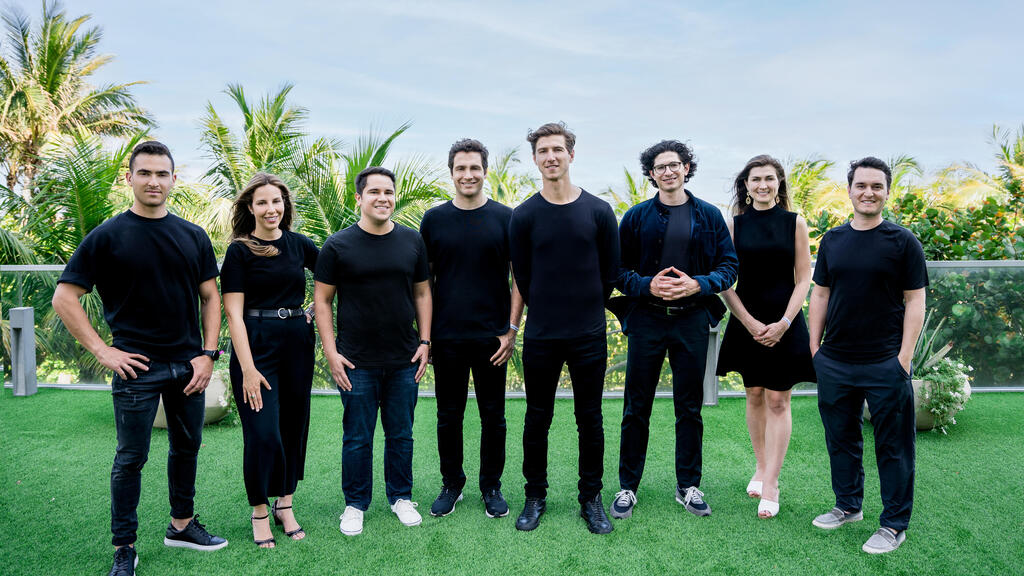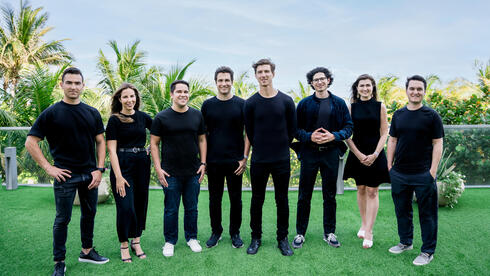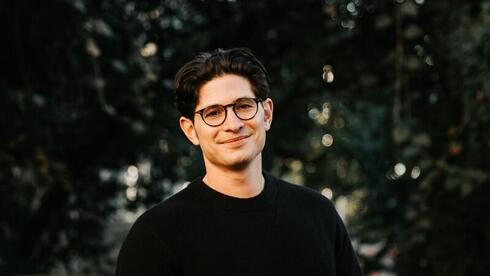

IL Tech in NY
Vine Ventures: “How you respond to your first ‘no,’ can increase your odds of a ‘yes’”
In collaboration with Israeli Mapped in NY, Vine Ventures has joined CTech for its IL Tech in NY series to discuss investment opportunities in America and Israel
“Don’t take anything for granted... Even those who appear to have good intentions can make you feel that their decision is in your favor, only to give you a ‘no’ days later,” said Dean Meyer, in response to CTech's question about how Israeli startups should act with investors from New York. Meyer is Investor and Head of Israel at Vine Ventures, a venture capital firm focused on Seed rounds for B2B SaaS, Security, and Fintech companies. “How you respond to your first ‘no,’ can increase your odds of a ‘yes’ when you get the second or third chance.”
Vine Ventures was founded in 2020 and started its New York operations at the same time. Today, it has $243 million AUM across two funds. The VC firm joined CTech as part of its IL Tech in NY series to share some insights on how Israeli founders can balance the two different markets and cultures.
Dan Povitsky, founding partner of Vine Ventures emphasizes: “Don’t be afraid of change… What worked in Israel may not necessarily work in the U.S. If needed, reframe your narrative, or your product proposition, to improve your chances with a new cohort of decision makers.”
You can catch the entire interview with Dan Povitsky and Dean Meyer below:
Name and type of organization: Vine Ventures, one of the largest Seed-focused VCs in New York City.
Main fields of investment: B2B SaaS, Security, Infrastructure, Dev Tools, FinTech, and Healthtech.
Names of principals/managing partners: Vine Ventures is founded by Eric Reiner and Dan Povitsky. The investment team includes Demren Sinik, Head of West Coast (based in San Francisco, previously at Blackstone), Dean Meyer, Head of Israel (based in Tel Aviv, previously at Team8), and Isaac Hasson (based in New York, previously at GoogleX).
Partners and/or other backers: Some of the world's leading technology investors, founders, pension funds, and endowments. These include Tiger Global Management and Bain Capital; as well as founders of Carta, Shutterstock, and Hippo, among others.
Year of founding/start of NY operations: 2020
Total sum of investments/size, number of funds: $243 million AUM across two funds.
Median investment amount/Average investment in startups: $1-10 million as a first check at the pre-Seed or Seed, with plenty in reserve for follow-on investment.
Number/size of rounds led: 23
General background on the organization, its managers, its founders and partners:
Founded in 2020 by Eric Reiner and Dan Povitsky, Vine Ventures has raised over $243 million from two funds. Vine invests in technology companies across the U.S, Israel, and Latin America; and has led and participated in funding rounds for 23 companies in under two years. Eric and Dan bring their experience of multi-stage investing from Insight Partners and TA Associates to pre-Seed through Series A rounds. Both in their early 30s, they represent a new generation of venture capitalists who share the values, mindset, and worldview with their founders. Prior to Vine, Eric and Dan backed some of the world’s most promising technology companies and dynamic founders, including eight unicorns: Carta, Hippo, Ro, Ramp, Dutchie, Habi, Unqork, and FrontApp.
The company’s vision:
We are long-term investors, backing founders at inception and continuing to invest until IPO. We have a single mandate - to help fledgling companies navigate the challenges of building generational businesses. We approach founders from a place of mutuality and seek to build a shared understanding through rapid and comprehensive work. This has enabled us to take big bets on generational companies long before other investors arrive.
What types of Israeli startups/entrepreneurs are you interested in?
We partner with world-class innovators at the earliest stages of company formation (typically pre-Seed and Seed). We recently opened our offices in Sarona, Tel Aviv, and couldn’t be more excited about the relationships we are building in the Israeli ecosystem. Investments at the early stage are a lot about the conviction and trust both sides (investor and founder) have in each other. When we invest it’s because we share the bold vision with the entrepreneur and are prepared to support this team through the ups and downs of company building. We put emphasis on leaders who have the potential to disrupt the markets in which they operate, which we are able to recognize early on due to the design partner and potential customer intros we make. In terms of category, we invest in B2B startups in the areas of SaaS, Security, Infrastructure, Dev Tools, FinTech, and Healthtech.
Related articles:
Why invest in an Israeli company in New York? What advantages do such companies have? How is the New York market different from the Israeli market?
Investing in Israeli companies and empowering their entry into the U.S market is one of the foundations on which Vine Ventures was built. We have experienced this move personally: Eric was among the first U.S hires for Dynamic Yield and Dan was born in Haifa and immigrated with his family to the U.S. There are many advantages to a global presence, but chiefly among them is the ability to unify a global talent pool and deepen relationships with big-budget customers by being in their backyard. We just launched our second fund of $140 million and are dedicating half of it to Israeli founders. We are excited to take part in those founders’ journeys and facilitate U.S customers, hires, and follow-on funding.
How do Israeli entrepreneurs/startups differ from their local counterparts?
A lot has been said about the difference in communication style between Israeli founders and their local counterparts, as well as exceptional technological skills in part due to military service, etc. While much of that is true, we also see a powerful, tight-knit community that Israeli entrepreneurs almost automatically step into and contribute to in the city. The Israeli ecosystem in New York City is extraordinary, welcoming, and the willingness to go out of their way to connect, assist, and support each other is something to be admired and learned from.
Two suggestions for Israeli entrepreneurs on what to do in New York:
- Be open-minded and agile… Especially in a new setting, it’s crucial to observe, listen, and refine. Network and hire people from different backgrounds who will add valuable dimensions to your business. Surround yourself with mentors, industry experts, and peers who will push you and help you achieve your vision.
- Don’t hesitate to ask… New York City has deep-rooted commercial energy. If you are looking for an intro to that key hire or target customer, it’s very likely someone a few degrees away will have inroads and be willing to help, as long as you ask (and follow up)!
Two suggestions for Israeli entrepreneurs on what not to do in New York:
- Don’t take anything for granted... Even those who appear to have good intentions can make you feel that their decision is in your favor, only to give you a ‘no’ days later. How you respond to your first ‘no,’ can increase your odds of a ‘yes’ when you get the second or third chance. So, acknowledge and be appreciative of other people for taking the time to meet with you, even if the initial outcome is not as positive as you hoped.
- Don’t be afraid of change… What worked in Israel may not necessarily work in the U.S. If needed, reframe your narrative, your product proposition, etc. to improve your chances with a new cohort of decision makers.
On a scale of 1-10 how much did the Covid pandemic impact your work?
In some ways, 0… Our investment criteria did not change. We are technology optimists. By sticking to our principles in evaluating business models, market opportunities, and teams, we continued our track record of backing some of the fastest growing and most strategic technology companies in the world.
But in some ways, 10… The pandemic abruptly changed how we live and work. We quickly adapted to supporting our founders in a fully digital market where hires, customers, and investors could be sourced, vetted, and closed remotely. With many industries’ tech adoption being pulled forward, we strategized with our founders on tactics to win in what - at its peak - became a fiercely competitive distributed environment.
Examples of 2-3 most successful investments:
- We seeded Tel Aviv-based Komodor in March 2020. Since then, we have been inspired to watch co-founders Ben Ofiri and Itiel Shwartz build one of the leading Kubernetes troubleshooting platforms. Komodor is used by engineering teams all over the world (from small startups to F500), and the platform is being trained on millions of Kubernetes events on a daily basis. The company raised Series A from Accel and Series B from Tiger and Felicis.
- Our portfolio company Hippo, an innovative digitally-native insurance carrier, publicly listed in 2021 (NYSE: HIPO). The company recently opened its Israel office.
- We were the first institutional investor in TUL and the company has grown into the largest construction materials marketplace in North America. In 2021, TUL announced a $200 million Series B at an $800 million valuation.
- We were one of the earliest investors in MANTL, a digital account opening software for U.S banks. As bank branches shut their doors and moved the majority of their business online during the pandemic, the company earned dozens of banks as customers. MANTL raised a $50 million Series B from CapitalG (Google’s VC) and D1 Capital.
The IL Tech in NY project is a collaboration between CTech and Israeli Mapped in NY. For more information email Guy Franklin via this link.

